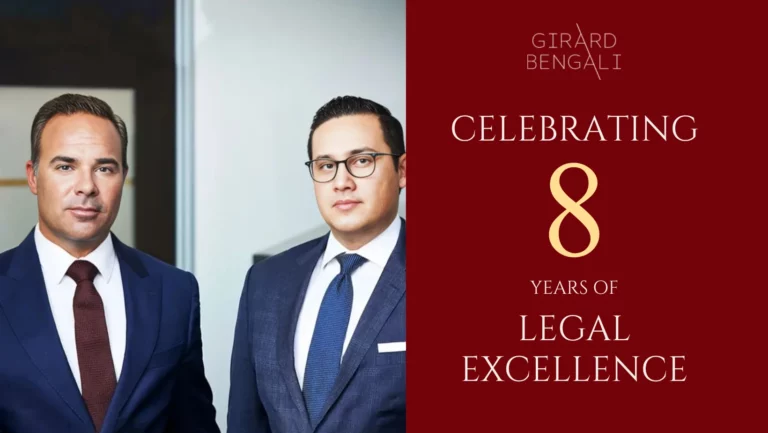Modern-Day Pyramid Schemes: San Diego Business Leader Convicted of $400 Million Ponzi Scheme

A San Diego businesswoman who pled guilty to defrauding investors of hundreds of millions of dollars has officially been sentenced to 15 years in federal prison.
That woman was Gina Champion-Cain, whose claim to the word “businesswoman” was weak at best. While she owned multiple businesses, including clothing stores, vacation rentals, and the now-closed chain of restaurants, Patio, she wasn’t skilled in keeping these companies running. What Champion-Cain was good at was convincing people to invest in her fake business “American National Investments.”
In fact, Champion-Cain was so good at this that she raised at least $372 million from nearly 500 investors. This is particularly impressive considering that the business earned essentially no money from legitimate sources. According to prosecutors, at least $180 million of investor money has been lost entirely.
Champion-Cain’s actions aren’t just noteworthy because of the sheer size of the fraud. She also accomplished one of the largest Ponzi schemes of all time. She paid back early investors with money she earned from later ones to keep people interested in her business. That’s the textbook definition of a Ponzi scheme, and she kept it going for seven years.
Here’s how Champion-Cain managed to keep the fraud under wraps so long and how you can avoid getting caught in a Ponzi scheme yourself.
How the Scheme Began
Champion-Cain opened several legitimate businesses before things went downhill. She founded American National Investments (ANI) as the umbrella organization to cover her real estate development activities in 2000. In 2012, however, she branched out into restaurants, hospitality, and lifestyle brands. That was when things took a turn.
One of ANI’s subsidiaries was a lending company by the same name. It supposedly offered high-interest loans to companies applying for liquor licenses. While that’s how the business started, it quickly ballooned into something completely different. According to Champion-Cain, things got out of control, so she started “making up” deals that never happened.
Those fake deals weren’t immediately discovered. However, Champion-Cain needed to pay off previous investors, so they didn’t get suspicious. Instead of making legitimate deals, she simply used new investment money to pay older debts. She also created false escrow agreements. Investors believed that all profit from the non-existent loans was held in escrow for them. In reality, Champion-Cain had access to all of it and spent it however she wanted.
From there, things spiraled. Champion-Cain continued to invent fake details and claim phony income. Meanwhile, she kept bringing in new investors to keep the ball rolling. Actual liquor license loans fell by the wayside.
Meanwhile, Champion-Cain used the invested funds to prop up her now-failing lifestyle brands and restaurants. She also lent hundreds of thousands of dollars to her parents, purchased million-dollar homes, and generally lived a life of luxury.
The Lies Unravel
This lasted until 2019 when the SEC first charged Champion-Cain and ANI with securities fraud. The SEC had been investigating the company for months before it made its claim. The evidence they brought before the court was damning.
The list of liquor licenses the company supposedly funded was almost entirely made up of canceled and expired licenses. Even worse, many of the businesses ANI claimed as customers had never heard of the company. The SEC also presented evidence that ANI’s escrow agreements were fake and included forged signatures.
It still took two years for the charges to make their way through the legal system. Champion-Cain fought it all the way, deleting critical emails, altering personal expense reports, and having employees shred hard copies of incriminating lending documents.
However, in June of 2020, she finally pled guilty to charges of securities fraud, conspiracy, and obstruction of justice. Multiple co-conspirators, including ANI’s CFO Crispin Torres Jr., pled guilty as well. The judge sentenced Champion-Cain to 15 years in prison for masterminding the scheme and Torres to four years for his help.
What to Do If You Suspect an Investment is Actually a Ponzi Scheme
Champion-Cain’s fraud lost her investors, many of which were personal friends, hundreds of millions of dollars. Some lost their retirement funds, and others went bankrupt. Understanding how to spot and avoid Ponzi schemes like hers is critical to investing safely.
At its heart, a Ponzi scheme is a house of cards. Modern pyramid schemes claim they have a method of earning money, but in reality, they rely on new investors to pay back old ones. Once people try to withdraw their funds or no new investors can be found, the entire pyramid collapses.
Some scams are simple: they claim you just need to send someone money, and you’ll receive that money and more back later. Others, like ANI, are incredibly complex. They include excellent marketing, a charismatic spokesperson, and a plausible product. What both have in common is simple: they don’t actually provide the service that supposedly earns them money.
If you think an opportunity is a scam, try to find proof of the company’s operations. Dig deeply, and remember that the business might be motivated to lie to you. After all, ANI’s liquor license list “proved” it was operational, but it was entirely fake. If you’re not sure, it’s always better to err on the side of caution and not invest.
Suppose you realize that an investment you’ve already made might be a Ponzi scheme. In that case, you should seek out a securities attorney immediately. They can help you investigate the company and discover whether it’s legitimate. More importantly, if it’s a scam, your attorney can help you recoup as much of your money as possible.
Fraudulent Investments Can Happen to Anyone
You can do your due diligence and still get caught by a scam. Champion-Cain kept the fraud rolling for years by faking her business at a high level. If you’re caught in a Ponzi scheme investment, you’re not alone, and you have tools at your disposal.
Reach out to the team at Girard Bengali, APC, to start getting help. With years of experience fighting for victims of fraud, our experienced securities and investment fraud attorneys can help you recover your losses.









